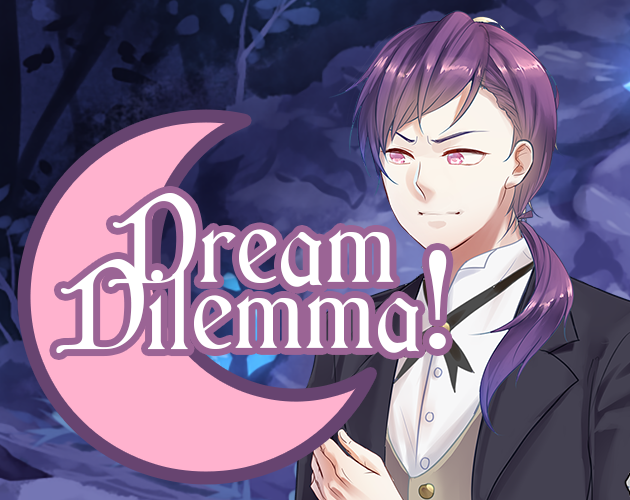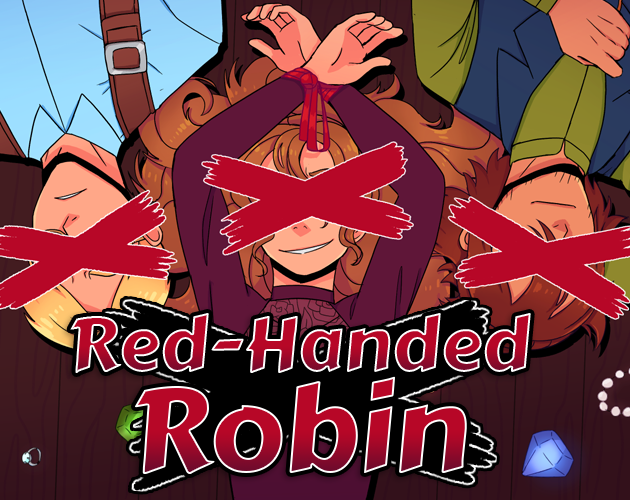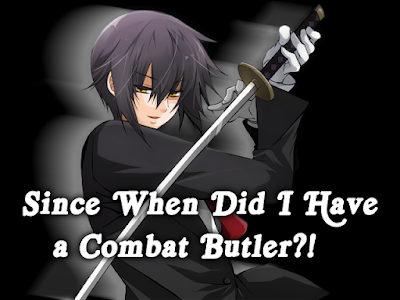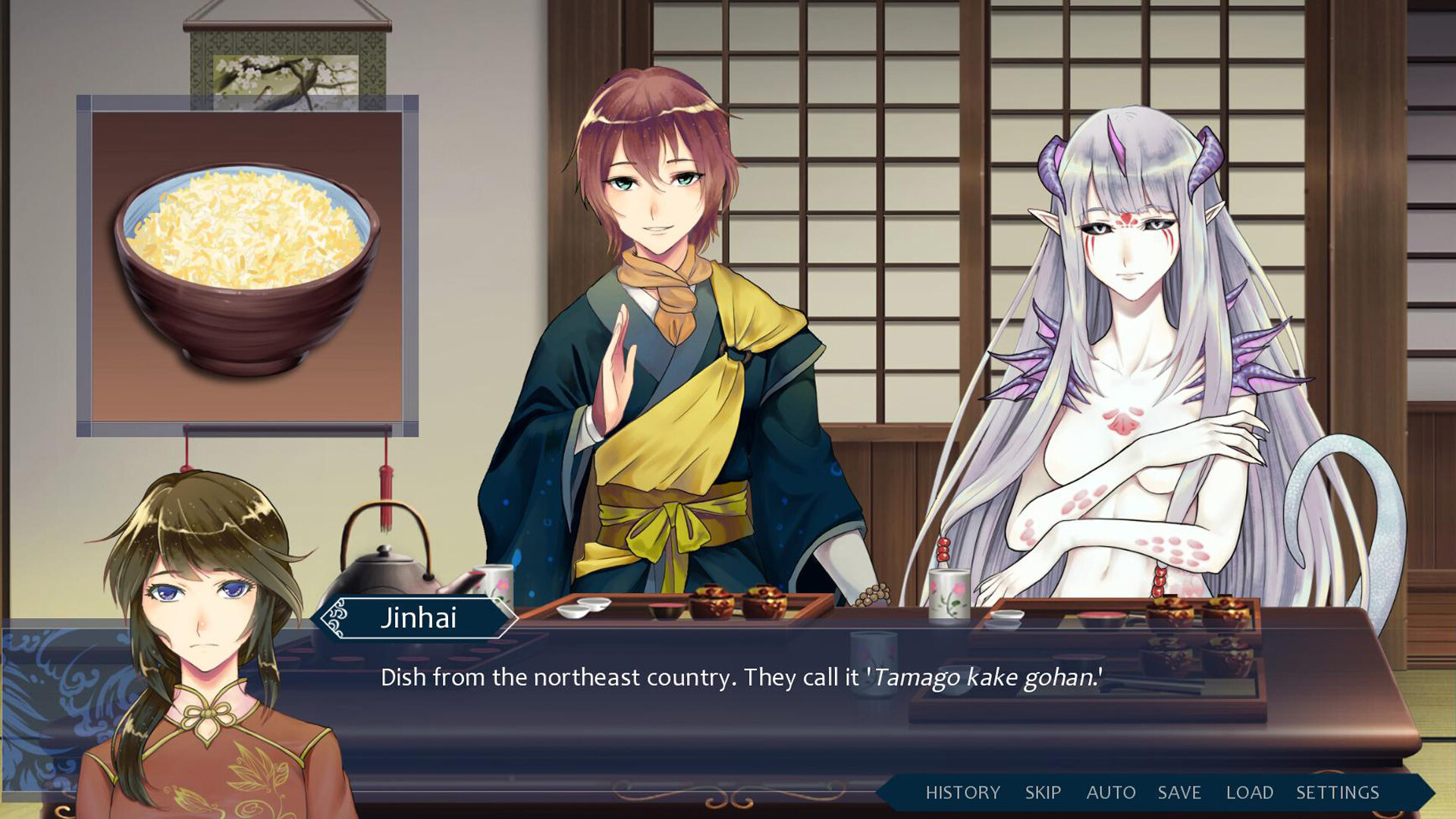
Check out the second part of the overview, NaNoRenO 2020 horror VNs, here!
NaNoRenO, the Ren’Py visual novel jam, is for many years now the biggest community event for EVNs, always bringing dozens of upstart developers, amateurs and veterans of the visual novel scene to share their work, ranging from demos and prototypes to complete (and often substantial) games. Since I’ve started the blog I’m always looking forwards to the opportunity to go through the projects submitted to the jam and present to you my personal highlights – games that are worth checking out not only from the perspective of a VN-obsessed weirdo such as myself, but also the average reader.
What set this year’s NaNoRenO apart from the usual routine were, quite predictably, the effects of the Coronavirus pandemic. However, while one could expect them to interfere with the development cycles and result in fewer games, the organizers’ decision to extend the traditional one-month deadline by two weeks resulted in more projects than usual getting submitted (105 to last year’s 89 and 2018’s 73). This included dozens of complete games that I was interested in, clearly signalizing a need to change the formula in which I shared my impressions – listing them in one place, even when after relatively rigorous filtering, would be both unwieldy for the readers and tedious to work on. Thus, I’ve decided to split my coverage by genres, starting with the niche that proved very compelling this time around – otome and other GxB romance VNs. So, please join me while I go through six games in this formula that showed up in NaNoRenO 2020 – and if you find any of them interesting, clicking the titles will bring you straight to their Itch.io pages. As always, all NaNoRenO releases are fully free-to-play, so the only thing they’ll demand is a few hours of your time. Let’s get this started!

Criminally Overdue is the newest project by Elowan, the author of Alloys over Flowers, one of my personal favourites from last year’s NaNoRenO. This time, instead of being a period drama, the game tells an unusual story in a modern setting: the protagonist is a librarian who after hours helps police in tracking down and arresting drug dealers – a part of a personal vendetta of sorts for the death of her mother, who passed away from an overdose after years of addiction. During one of her investigations, she targets a local university student, which leads her to listening in on the girl’s conversation with a teacher who accidentally learned about her involvement with drugs. Hearing the girl’s motivation for drug dealing and teacher’s attempt to steer her on a better path causes the protagonist to doubt her actions, something she didn’t feel for years and as the teacher in question becomes a frequent patron in her library, she has to reevaluate her choices and think about a path forward – either overcoming her obsession with drug dealers or doubling down on the crusade against them.
Criminally Overdue stands out with its conflicted, bitter protagonist and moral quandaries connected to her fight with drug dealers, and although I can’t say I find it as compelling as Alloys over Flowers, particularly the path where the heroine steps away from her unhealthy “hobby” has a lot going for it. The game’s love interest, the young university teacher I’ve mentioned earlier, is a believable catalyst for the protagonist’s change and a pretty cool character in his own right – caring and eloquent, but also somewhat shy and occasionally awkward. The scenario where their romance blooms is genuinely cute and heartwarming. I just wished the alternative conclusion was at least a bit less of a bad end – Elowan’s previous game made a good job of making alternative endings interesting, while here I kind of wished for the whole experience to be kinetic and focus even more on the protagonist's transformation and her troubled path to romance. At least for the “right” path, though, this VN is definitely worth checking out, also because it looks and sounds very solid for a game jam project.
Final Rating: Recommended

Enamored Risks by Crystal Game Works, the studio of NaNoRenO and Yuri Game Jam veteran Mikomi Kisomi, is one of the most traditional otome games I’m writing about today. Despite being very by-the-numbers, however, it’s possibly my favourite VN so far from this developer and the easiest one on this list to recommend. It follows the story of a nursing student living a dull life filled by schoolwork and constantly being pestered about her academic performance by her controlling parents. One day, she gets fascinated by a blog exploring urban ruins and abandoned buildings in her city and soon after discovers that one of her university friends is involved in it. This kicks off a story of friendship and romance with three possible love interests, two male and one female one, all of them with their own themes/problems to overcome and really good chemistry with the protagonist.
Trying to explain the appeal of Enamored Risks is a bit tricky, as describing its story details will ultimately sound mundane, with the theme of urban exploration being the only unusual element. What truly makes it work is the solid design of the love interests and the writing (which is, to be brutally honest, significantly above what I’ve seen in other game jam projects by Mikomi). By the end of it, I was deeply fond of each of the main characters and the romantic conclusions of each route were appropriately satisfying. My only criticism is connected to the CG art, which wasn’t always by the same artist as the excellent character sprites and whenever that happened, the contrast in quality was impossible to miss. Still, it could hardly ruin the overall impression – sometimes simply getting the basics right to this degree is enough for a compelling experience. And with 3-4 hours of content, it’s an excellent way to fill one or two evenings – if you’re a fan of otome, yuri (the GxG route is arguably the best one in the game) or romance stories in general, you’ll likely enjoy this one a lot.
Final Rating: Highly Recommended

Dream Dilemma is less of a romance game and more of a short horror story, although the main pairing between the female protagonist and her “destined” soulmate, who shows up in her dreams since her childhood, is central to the plot. Sadly, what is a rather excellent concept is brought down rather significantly by rushed execution. The protagonist’s recurring dream, always featuring the same person who seems to age alongside her and interact with her (although without the ability to speak with each other or otherwise exchange complex information), is disturbed by the appearance of a nefarious being that introduces himself as Phebetor. Our lead, being on the demon’s mercy, has to solve his three riddles to avoid death (or, possibly worse than that, endless torment), and learn the truth about the boy that accompanied her in her sleep nearly every night.
The promising setup, mixing some very modern VN horror tricks with themes from Greek mythology is not completely wasted here, but simply does not receive the buildup and genuine tension it needed to be truly effective. Especially the connection between the protagonist and the boy she sees in her dreams just screamed for more elaboration and romantic tension, which would make their eventual meeting in the real world more meaningful to the reader. Still, the framework of the story is rather solid and with how short the game is, it doesn’t cost much to check it out and reach all the possible endings – just don’t expect anything more than a quick distraction.
Final Rating: Cautiously Recommended
Obviously, the production quality is not the selling point here and while the crude sprites and simple photographic backgrounds could be seen part of the semi-parodistic formula, the choice of stock music is arguably abysmal and I highly recommend bringing your own soundtrack if you want to read this one. Also, to be completely clear, despite its meme’y nature, the game is highly inoffensive and generally kind-spirited. It’s also not completely random or self-indulgent – there is a genuine story in there, buried under the mountain of dad-jokes and purposefully-awkward references to internet folklore. While I won’t recommend everyone to check it out, if you’re looking for some silly entertainment, it’s not as bad of a choice as the crooked character designs could suggest and I imagine that in the future, if they have such ambition, this VN's author could create something genuinely interesting.
Final Rating: Cautiously Recommended

Including Red-Handed Robin on this list goes against my usual policy of only covering finished projects, as for the time being only the first half of it is available, but it’s a game that is already shaping up quite well and a full version of which I’m heavily anticipating. This story of Robin, a con-woman involved in the murder of a wealthy jeweller (with a passion for imprisoning and murdering his lovers) is plenty-twisted, but also does a pretty great job of referencing and subverting classic themes from detective stories. While trying to flee the country on a luxury train, along with the aforementioned jeweller’s servant (who helped her escape captivity and kill him), Robin meets her childhood friend – a former servant in her house that vanished suddenly, but now is revealed to be a police investigator. This provokes a battle of wits – and affection – that will decide whether, and in what way, Robin might get away with her crimes and how she will reconcile with the troubled history of her family.
While I can’t say for sure how compelling the resolution of the story is going to be, particularly with the first chapter being rather short and apparently containing most of the choices important for the plot’s resolution, the setup that is already here is genuinely brilliant. The fun dialogue and moral ambiguity of the central characters, combined with the complex relationships they share have tons of potential and even if this won’t be used to the fullest, it’s very likely to offer a fun and satisfying experience. While I don’t necessarily recommend to read this game in its incomplete state, I will suggest checking it out as soon as the complete story is released – particularly because it looks and sounds just as good as it reads.
Final Rating: Recommended

Katy133’s Dear Devere is not a traditional VN, but more of an epistolary novel, telling a supernatural love story through letters exchanged between a lonely young woman and a mysterious Mr Devere, all in a small town in the WW2-era Britain. While it’s a short game, and maybe a tiny bit rushed when it goes to romance, it offers some very nice artistic qualities. Most letters are elaborately (and beautifully) illustrated, making the game’s mode of storytelling surprisingly compelling in its visuals. Also, the letters between the protagonist and Devere are fully voice acted, giving the experience additional personality and relaxed pacing (the latter being, in a way, quite appropriate for a story told through correspondence). Another interesting touch is the perspective from which we learn the story – that of a police detective investigating the protagonist’s fate.
If I had to summarize Dear Devere with one word, it would be “charming” – it’s a lovely little experience that is more about style and composition than it is about the plot, but isn’t truly devoid of substance either. With how short it is, there are really few reasons to not give it a try and appreciate all the amusing details and unique illustrations it includes – and if you also get charmed by its slightly mystical romance, all the better.
Final Rating: Recommended
Since When Did I Have a Combat Butler?!
SWDIHaCB?! is a project unusually ambitious for a game jam and while it has a fair share of problems which make me hesitant to truly recommend reading it, it’s also not without interesting elements. The main one worth mentioning is the voice acting – the game is fully voiced, which with over 16k words in its script (and very little silent narration) means a lot of spoken dialogue. The voicework itself, while quite obviously amateur, is far from being the worst I’ve heard in an EVN – maybe not good enough for me to consider it a clear net-positive for the experience, but I’m pretty picky in this regard and there’s also a non-voiced version available. The plot itself, as unpolished and confusing it can be at times, has some pretty imaginative elements – ultimately, there was a bit more depth than I expected beneath the silly premise of a magical combat butler suddenly appearing in the average high school girl’s life.
When it goes to execution of the story and the production quality, things become slightly harder to defend, pretty much placing the whole game in the same category as The Punniest Pun Messter – an amusing mess. The main sin of SWDIHaCB?!'s authors was trying to do way too many things at once, with none of the many characters and story threads getting enough development and the romance lacking buildup. The CG art has a very peculiar style, very different from the simple, but decent sprites, effectively murdering the impact of the few romantic moments that actually show up in the VN. Combined with the non-professional VA, all this creates a feel of a game in which nothing really works as well as it should – and while it’s not truly bad, I only suggest checking it out to those looking for a particularly silly/whimsical experience.
Final Rating: Cautiously Recommended
So, that’s it for today’s summary – I hope you enjoyed it and will consider giving some (or all) of these games a chance. While only a few projects in this year’s event truly impressed or surprised me, there are many which are simply very solid and enjoyable, making them deeply attractive offerings as freeware games. Enamored Risks proved to be the highlight among otome ones just through the virtue of keeping things simple and executing the standard romance formula is a very consistent and effective fashion. Someone who reviews pieces of media by the hundreds, like I do, often feels the need to demand innovation and fresh takes on the classic story templates, but simply creating relatable characters and heartwarming romance will never lose its value, and Mikomi’s team really succeeded in this regard. If you’re looking for something different, games like Dear Devere and Red-Handed Robin offer interesting spins on either the mode of storytelling or the usual tropes of VNs.
As always, there’s a lot of enjoyment to find among NaNoRenO entries – and when it comes to my coverage of it, it’s just the beginning. I hope you’ll be willing to join me in two weeks for the second part of my highlights, this time themed around horror. Thank you for your time!






